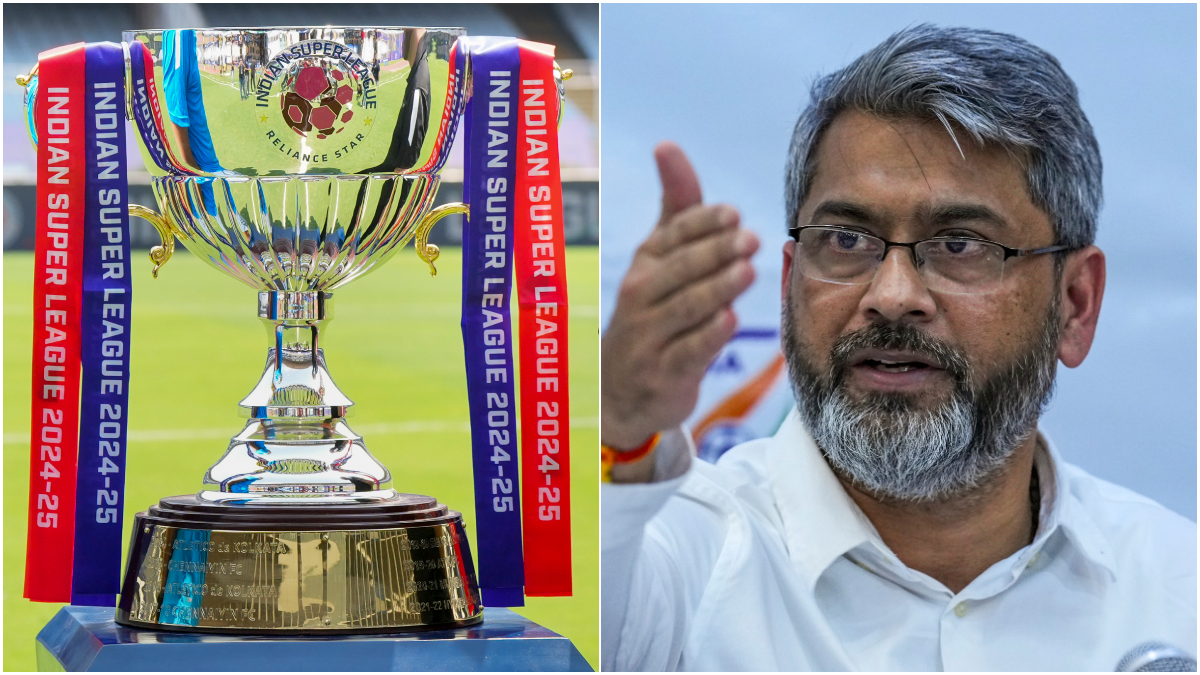Indian football is at a critical juncture right now. The Master Rights Agreement (MRA) between the All India Football Federation (AIFF) and its marketing partner, Football Sports Development Limited (FSDL), is set to expire on December 8, 2025. It has put the future of the Indian Super League (ISL) 2025-26 season in jeopardy with no start date in sight.
The ball is in AIFF’s court
The Supreme Court has now asked AIFF and FSDL to reach a solution within a week, putting the ball completely in AIFF’s court. The Supreme Court on Friday, August 22 directed both parties to sit together and “find a solution” before the next hearing on August 28. A special bench, led by Justice Sri Narasimha and Justice Joymalya Bagchi, is overseeing the matter closely.
The AIFF, led by president Kalyan Chaubey, responded to the Supreme Court’s direction by stating that it will “endeavour to arrive at mutually agreeable measures to enable timely commencement of the 2025-26 football calendar.” Any decision agreed upon by the AIFF and FSDL will be presented to the Supreme Court at the next hearing.
The ISL season typically runs until March-April, but the MRA ends in December. FSDL cannot legally operate the league or organise matches without at least a short-term extension of the contract. This uncertainty has already caused significant disruption as it threatens the very existence of top-tier football in India.
Why a short-term extension matters
The FSDL put the ISL 2025-26 season on hold last month, citing concerns over the MRA renewal. The decision forced several clubs to pause first-team operations or even suspend player and staff salaries. At least 11 clubs have warned that they might shut down completely if the situation isn’t resolved soon.
The livelihoods of nearly 5,000 people, including players, coaches, support staff, and stadium workers, are directly impacted by this issue. The crisis has also drawn attention from international bodies such as FIFA and the AFC, both of which are closely monitoring developments in Indian football.
A failure to reach a short-term extension could damage the credibility of the league and further slow down the growth of football in the country. A temporary extension of even five months could solve the problem. It would allow FSDL to conduct the ISL 2025-26 season, allowing clubs to plan their schedules, pay staff and players, and run their academies.
This measure would not resolve the long-term contract issue but would provide some breathing space until the new MRA is signed. Every day counts because the season was slated to start in September, which is just a week away.
What should be the path forward?
A temporary contract extension is the simplest way to protect the sport, the players, and the staff who depend on it.
Negotiations between AIFF and FSDL are expected to be fast-tracked. If the AIFF acts quickly and allows a short-term extension, the ISL season can start on time, and the league can run without interruption.
If the delay keeps going, it could cause big problems as players and staff might not get paid, clubs could shut down, and India’s reputation in world football could get worse.
The Supreme Court has set a deadline of August 28 for the next hearing. Until then, the responsibility is squarely on AIFF to make a decision that protects the league and safeguards the livelihoods of over 5,000 people.
I am a passionate sports writer with a keen eye for the stories that make sports more than just a game. With over six years of experience covering a wide range of sports, I try and bring a unique perspective to the world of sports journalism.
)